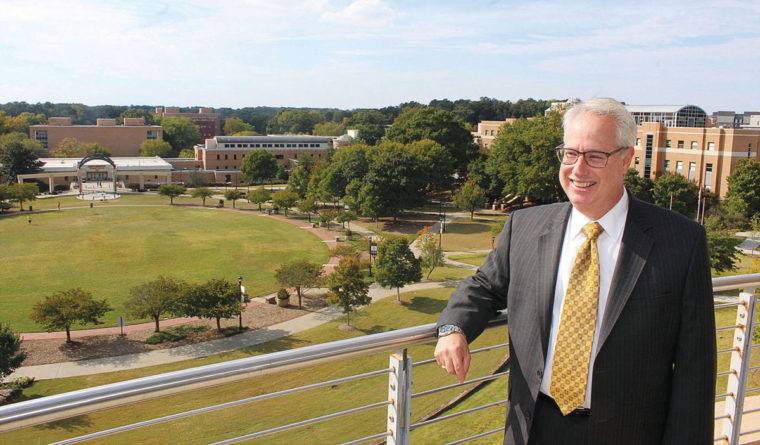We don’t talk enough in higher education about the damage that governing boards can do to an institution. Trustees have a vital role to play in supporting and leading colleges, but they can make critical decisions that fundamentally undermine the institution they are to guide. The most important role for a governing board is the selection and supervision of the president. In today’s post, I want to make the case that boards have to stop rigging searches when hiring politician as university president.

According to the best data currently available from the American Council on Education, 2% of presidents come from the ranks of elected or appointed government officials.
This is a relatively small number, but I suspect when the new data comes out the trend will have increased at least some (the current data is from 2011).
It is easy to understand why governing boards want to look at nontraditional candidates in general and government officials in particular.
Many of the job functions of today’s college presidents are similar to government officials including working with state legislators, fundraising, external relations.
Faculty and other internal stakeholders worry about nontraditional presidents for a variety of reasons. First, there is concern that a president with little or no higher education experience will not value the academic culture.
With politicians in particular, there is concern that political ideology will trump the norms and culture of the institution.
The hiring of Georgia’s attorney general Sam Olens as the next president of Kennesaw State University is an example of concerns over political ideology. Students, faculty, and other opponents oppose Olens appointment, in part, due to his position on gay rights throughout his career.
While I disagree with Olens’ views, my argument is that the search process leading to his appointment will cause greater damage to his presidency perhaps undermining it from the beginning.
At Kennesaw, the search appeared to be rigged for Olens. No search committee was appointed and there was no consultation with major stakeholders on campus. The Faculty Senate and local chapter of the American Association of University Professors wrote the Board of Regents requesting a search committee.
I have no idea if Olens is the right person to lead Kennesaw State. However, I do know that being the right person isn’t the only consideration.
You have to be the right person and selected through a fair search process.
Olens may be the former, but he certainly wasn’t the latter.
One need to look no farther than the University of Iowa’s Bruce Harreld to see the damage that a bad search process can cause a new president.
Harreld, a former IBM businessman, was hired to lead the university in 2015. Most objective observers would suggest Harreld’s search was rigged or he was at least given more favorable treatment than other candidates for the position.
Weeks before the formal interviews, Harreld met with multiple board members. He gave a lecture to university hospital administrators and met with three search committee members. The board chair also set up a phone call between Harreld and the state’s governor, Terry Branstad.
No other candidate received these benefits and there is plenty of evidence to suggest the board’s search process was inappropriate.
The regents liked Harreld’s business experience in turning around organizations over the traditional experience of the other 3 finalists: presidents and provosts at other top universities.
Iowa’s faculty senate and student government voted no confidence in the board because of its “blatant disregard for the shared nature of university governance.”
Since assuming office, Harreld has struggled to build relationships. He held one town hall meeting that was disrupted by protesters and hostile questioning. No other meetings have been scheduled.
The Search Process is Important
National searches for college presidents are expensive and time consuming. There is no guarantee that they will lead to hiring the right person.
However, they are vitally important for the campus community to have faith in the new president.
Hiring a nontraditional university president is one thing. Hiring a nontraditional president because of they have powerful connections is another.
A search that doesn’t consult with multiple stakeholders and seek to open communication lines on campus will hinder a new president.
Admittedly, most faculty will not like a president without significant higher education experience.
If a new president shows a respect for academic values, listens, and builds relationship, they can still be successful.
A new president hired through cronyism will likely never get a second look from many of the most important internal stakeholders needed for leading a university.
The biggest problem in these searches is that governing boards have unrealistic expectations and goals of transforming institutions. They believe that no one from inside higher education can create the change they desire so they rig the search for a nontraditional candidate.
I do believe there are scenarios where a nontraditional president can be successful— particularly as a system president.
Regardless of background, presidents need to demonstrate a belief in shared governance, an understanding of institutional culture, an appreciation for the role of an institution’s mission and scholarship, valuing the sense of community on campus, and a heartfelt belief in academic norms and values.
Unfortunately, many boards conduct such a flawed process especially when hiring politicians that a new president starts with one hand tied behind their backs.
This hurts the president and the institution.
That’s why I beg governing boards, stop rigging searches when hiring politicians as university president.

